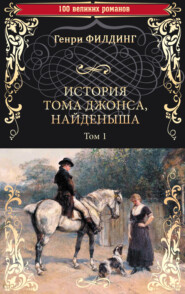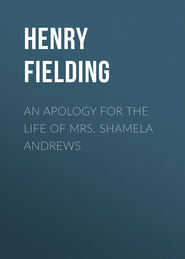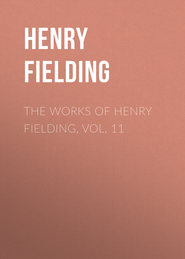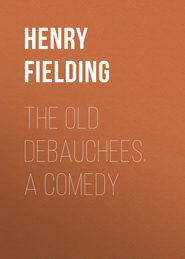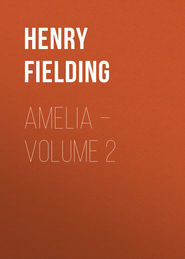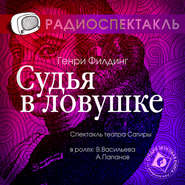По всем вопросам обращайтесь на: info@litportal.ru
(©) 2003-2024.
✖
A Journey from This World to the Next
Настройки чтения
Размер шрифта
Высота строк
Поля
We now proceeded on our journey, without staying to see whether he fulfilled his word or no; and without encountering anything worth mentioning, came to the place where the spirits on their passage to the other world were obliged to decide by lot the station in which every one was to act there. Here was a monstrous wheel, infinitely larger than those in which I had formerly seen lottery-tickets deposited. This was called the WHEEL OF FORTUNE.
The goddess herself was present. She was one of the most deformed females I ever beheld; nor could I help observing the frowns she expressed when any beautiful spirit of her own sex passed by her, nor the affability which smiled in her countenance on the approach of any handsome male spirits. Hence I accounted for the truth of an observation I had often made on earth, that nothing is more fortunate than handsome men, nor more unfortunate than handsome women. The reader may be perhaps pleased with an account of the whole method of equipping a spirit for his entrance into the flesh.
First, then, he receives from a very sage person, whose look much resembled that of an apothecary (his warehouse likewise bearing an affinity to an apothecary’s shop), a small phial inscribed, THE PATHETIC POTION, to be taken just before you are born. This potion is a mixture of all the passions, but in no exact proportion, so that sometimes one predominates, and sometimes another; nay, often in the hurry of making up, one particular ingredient is, as we were informed, left out. The spirit receiveth at the same time another medicine called the NOUSPHORIC DECOCTION, of which he is to drink ad libitum. This decoction is an extract from the faculties of the mind, sometimes extremely strong and spirituous, and sometimes altogether as weak; for very little care is taken in the preparation. This decoction is so extremely bitter and unpleasant, that, notwithstanding its wholesomeness, several spirits will not be persuaded to swallow a drop of it, but throw it away, or give it to any other who will receive it; by which means some who were not disgusted by the nauseousness drank double and treble portions. I observed a beautiful young female, who, tasting it immediately from curiosity, screwed up her face and cast it from her with great disdain, whence advancing presently to the wheel, she drew a coronet, which she clapped up so eagerly that I could not distinguish the degree; and indeed I observed several of the same sex, after a very small sip, throw the bottles away. As soon as the spirit is dismissed by the operator, or apothecary, he is at liberty to approach the wheel, where he hath a right to extract a single lot: but those whom Fortune favors she permits sometimes secretly to draw three or four. I observed a comical kind of figure who drew forth a handful, which, when he opened, were a bishop, a general, a privy-counselor, a player, and a poet-laureate, and, returning the three first, he walked off, smiling, with the two last. Every single lot contained two more articles, which were generally disposed so as to render the lots as equal as possible to each other; on one was written, EARL, RICHES, HEALTH, DISQUIETUDE; on another, COBLER, SICKNESS, GOOD-HUMOR; on a third, POET, CONTEMPT, SELF-SATISFACTION; on a fourth, GENERAL, HONOR, DISCONTENT; on a fifth, COTTAGE, HAPPY LOVE; on a sixth, COACH AND SIX, IMPOTENT JEALOUS HUSBAND; on a seventh, PRIME MINISTER, DISGRACE; on an eighth, PATRIOT, GLORY; on a ninth, PHILOSOPHER, POVERTY, EASE; on a tenth, MERCHANT, RICHES, CARE. And indeed the whole seemed to contain such a mixture of good and evil, that it would have puzzled me which to choose. I must not omit here that in every lot was directed whether the drawer should marry or remain in celibacy, the married lots being all marked with a large pair of horns. We were obliged, before we quitted this place, to take each of us an emetic from the apothecary, which immediately purged us of all our earthly passions, and presently the cloud forsook our eyes, as it doth those of Aeneas in Virgil, when removed by Venus; and we discerned things in a much clearer light than before. We began to compassionate those spirits who were making their entry into the flesh, whom we had till then secretly envied, and to long eagerly for those delightful plains which now opened themselves to our eyes, and to which we now hastened with the utmost eagerness. On our way we met with several spirits with very dejected countenances; but our expedition would not suffer us to ask any questions. At length we arrived at the gate of Elysium. Here was a prodigious crowd of spirits waiting for admittance, some of whom were admitted, and some were rejected; for all were strictly examined by the porter, whom I soon discovered to be the celebrated judge Minos.
CHAPTER VII
The proceedings of judge Minos at the gate of Elysium.
I now got near enough to the gate to hear the several claims of those who endeavored to pass. The first among other pretensions, set forth that he had been very liberal to an hospital; but Minos answered, “Ostentation,” and repulsed him. The second exhibited that he had constantly frequented his church, been a rigid observer of fast-days: he likewise represented the great animosity he had shown to vice in others, which never escaped his severest censure; and as to his own behavior, he had never been once guilty of whoring, drinking, gluttony, or any other excess. He said he had disinherited his son for getting a bastard. “Have you so?” said Minos; “then pray return into the other world and beget another; for such an unnatural rascal shall never pass this gate.” A dozen others, who had advanced with very confident countenances, seeing him rejected, turned about of their own accord, declaring, if he could not pass, they had no expectation, and accordingly they followed him back to earth; which was the fate of all who were repulsed, they being obliged to take a further purification, unless those who were guilty of some very heinous crimes, who were hustled in at a little back gate, whence they tumbled immediately into the bottomless pit.
The next spirit that came up declared he had done neither good nor evil in the world; for that since his arrival at man’s estate he had spent his whole time in search of curiosities; and particularly in the study of butterflies, of which he had collected an immense number. Minos made him no answer, but with great scorn pushed him back. There now advanced a very beautiful spirit indeed. She began to ogle Minos the moment she saw him. She said she hoped there was some merit in refusing a great number of lovers, and dying a maid, though she had had the choice of a hundred. Minos told her she had not refused enow yet, and turned her back.
She was succeeded by a spirit who told the judge he believed his works would speak for him. “What works?” answered Minos. “My dramatic works,” replied the other, “which have done so much good in recommending virtue and punishing vice.” “Very well,” said the judge; “if you please to stand by, the first person who passes the gate by your means shall carry you in with him; but, if you will take my advice, I think, for expedition sake, you had better return, and live another life upon earth.” The bard grumbled at this, and replied that, besides his poetical works, he had done some other good things: for that he had once lent the whole profits of a benefit-night to a friend, and by that means had saved him and his family from destruction. Upon this the gate flew open, and Minos desired him to walk in, telling him, if he had mentioned this at first, he might have spared the remembrance of his plays. The poet answered, he believed, if Minos had read his works, he would set a higher value on them. He was then beginning to repeat, but Minos pushed him forward, and, turning his back to him, applied himself to the next passenger, a very genteel spirit, who made a very low bow to Minos, and then threw himself into an erect attitude, and imitated the motion of taking snuff with his right hand. Minos asked him what he had to say for himself. He answered, he would dance a minuet with any spirit in Elysium: that he could likewise perform all his other exercises very well, and hoped he had in his life deserved the character of a perfect fine gentleman. Minos replied it would be great pity to rob the world of so fine a gentleman, and therefore desired him to take the other trip. The beau bowed, thanked the judge, and said he desired no better.
Several spirits expressed much astonishment at this his satisfaction; but we were afterwards informed he had not taken the emetic above mentioned.
A miserable old spirit now crawled forwards, whose face I thought I had formerly seen near Westminster Abbey. He entertained Minos with a long harangue of what he had done when in the HOUSE; and then proceeded to inform him how much he was worth, without attempting to produce a single instance of any one good action. Minos stopped the career of his discourse, and acquainted him he must take a trip back again.
“What! to S – house?” said the spirit in an ecstasy; but the judge, without making him any answer, turned to another, who with a very solemn air and great dignity, acquainted him he was a duke. “To the right-about, Mr. Duke,” cried Minos, “you are infinitely too great a man for Elysium;” and then, giving him a kick on the b – ch, he addressed himself to a spirit who, with fear and trembling, begged he might not go to the bottomless pit: he said he hoped Minos would consider that, though he had gone astray, he had suffered for it – that it was necessity which drove him to the robbery of eighteenpence, which he had committed, and for which he was hanged – that he had done some good actions in his life – that he had supported an aged parent with his labor – that he had been a very tender husband and a kind father – and that he had ruined himself by being bail for his friend. At which words the gate opened, and Minos bade him enter, giving him a slap on the back as he passed by him. A great number of spirits now came forwards, who all declared they had the same claim, and that the captain should speak for them. He acquainted the judge that they had been all slain in the service of their country. Minos was going to admit them, but had the curiosity to ask who had been the invader, in order, as he said, to prepare the back gate for him. The captain answered they had been the invaders themselves – that they had entered the enemy’s country, and burned and plundered several cities. “And for what reason?” said Minos. “By the command of him who paid us,” said the captain; “that is the reason of a soldier. We are to execute whatever we are commanded, or we should be a disgrace to the army, and very little deserve our pay.” “You are brave fellows indeed,” said Minos; “but be pleased to face about, and obey my command for once, in returning back to the other world: for what should such fellows as you do where there are no cities to be burned, nor people to be destroyed? But let me advise you to have a stricter regard to truth for the future, and not call the depopulating other countries the service of your own.” The captain answered, in a rage, “D – n me! do you give me the lie?” and was going to take Minos by the nose had not his guards prevented him, and immediately turned him and all his followers back the same road they came.
Four spirits informed the judge that they had been starved to death through poverty – being the father, mother, and two children; that they had been honest and as industrious as possible, till sickness had prevented the man from labor. “All that is very true,” cried a grave spirit who stood by. “I know the fact; for these poor people were under my cure.” “You was, I suppose, the parson of the parish,” cries Minos; “I hope you had a good living, sir.” “That was but a small one,” replied the spirit; “but I had another a little better.” – “Very well,” said Minos; “let the poor people pass.” At which the parson was stepping forwards with a stately gait before them; but Minos caught hold of him and pulled him back, saying, “Not so fast, doctor – you must take one step more into the other world first; for no man enters that gate without charity.” A very stately figure now presented himself, and, informing Minos he was a patriot, began a very florid harangue on public virtue and the liberties of his country. Upon which Minos showed him the utmost respect, and ordered the gate to be opened. The patriot was not contented with this applause; he said he had behaved as well in place as he had done in the opposition; and that, though he was now obliged to embrace the court measures, yet he had behaved very honestly to his friends, and brought as many in as was possible. “Hold a moment,” says Minos: “on second consideration, Mr. Patriot, I think a man of your great virtue and abilities will be so much missed by your country, that, if I might advise you, you should take a journey back again. I am sure you will not decline it; for I am certain you will, with great readiness, sacrifice your own happiness to the public good.” The patriot smiled, and told Minos he believed he was in jest; and was offering to enter the gate, but the judge laid fast hold of him and insisted on his return, which the patriot still declining, he at last ordered his guards to seize him and conduct him back.
A spirit now advanced, and the gate was immediately thrown open to him before he had spoken a word. I heard some whisper, “That is our last lord mayor.”
It now came to our company’s turn. The fair spirit which I mentioned with so much applause in the beginning of my journey passed through very easily; but the grave lady was rejected on her first appearance, Minos declaring there was not a single prude in Elysium.
The judge then addressed himself to me, who little expected to pass this fiery trial. I confessed I had indulged myself very freely with wine and women in my youth, but had never done an injury to any man living, nor avoided an opportunity of doing good; that I pretended to very little virtue more than general philanthropy and private friendship. I was proceeding, when Minos bade me enter the gate, and not indulge myself with trumpeting forth my virtues. I accordingly passed forward with my lovely companion, and, embracing her with vast eagerness, but spiritual innocence, she returned my embrace in the same manner, and we both congratulated ourselves on our arrival in this happy region, whose beauty no painting of the imagination can describe.







